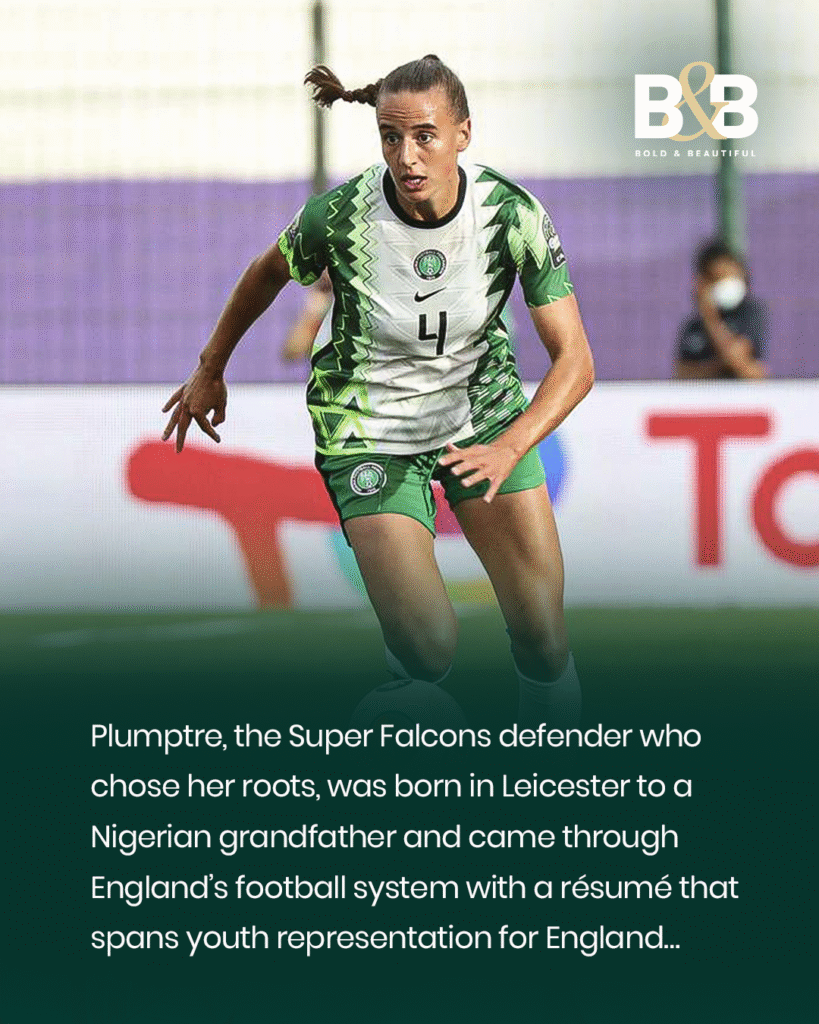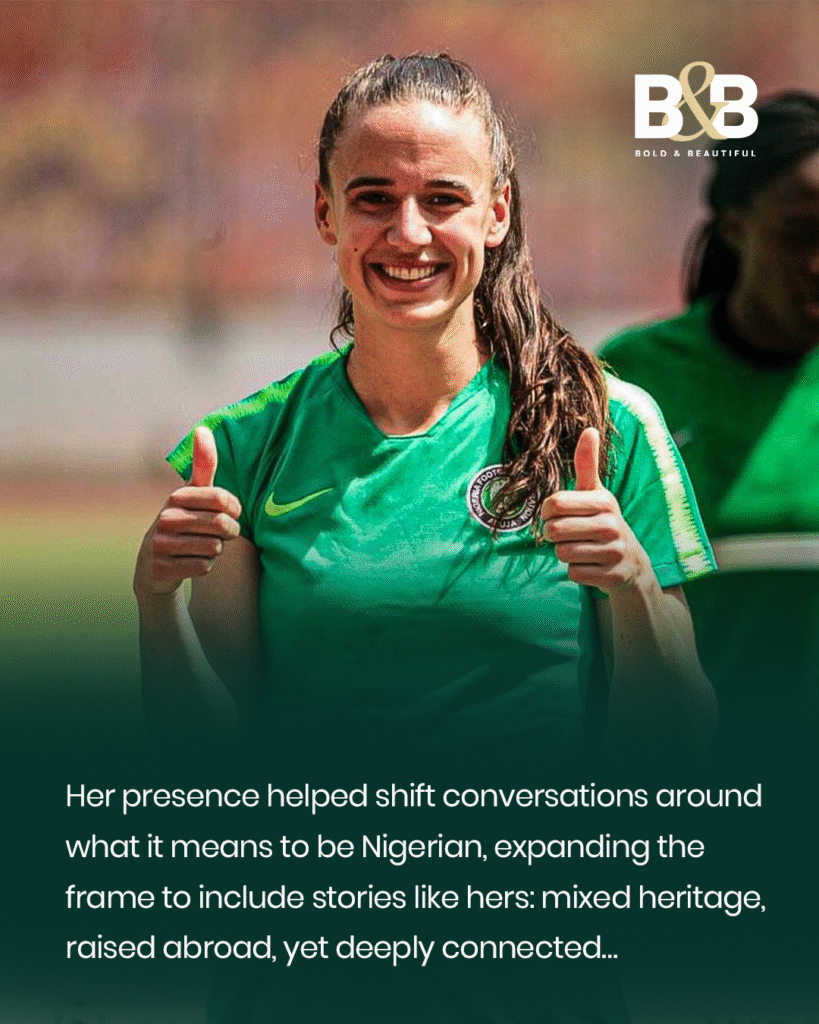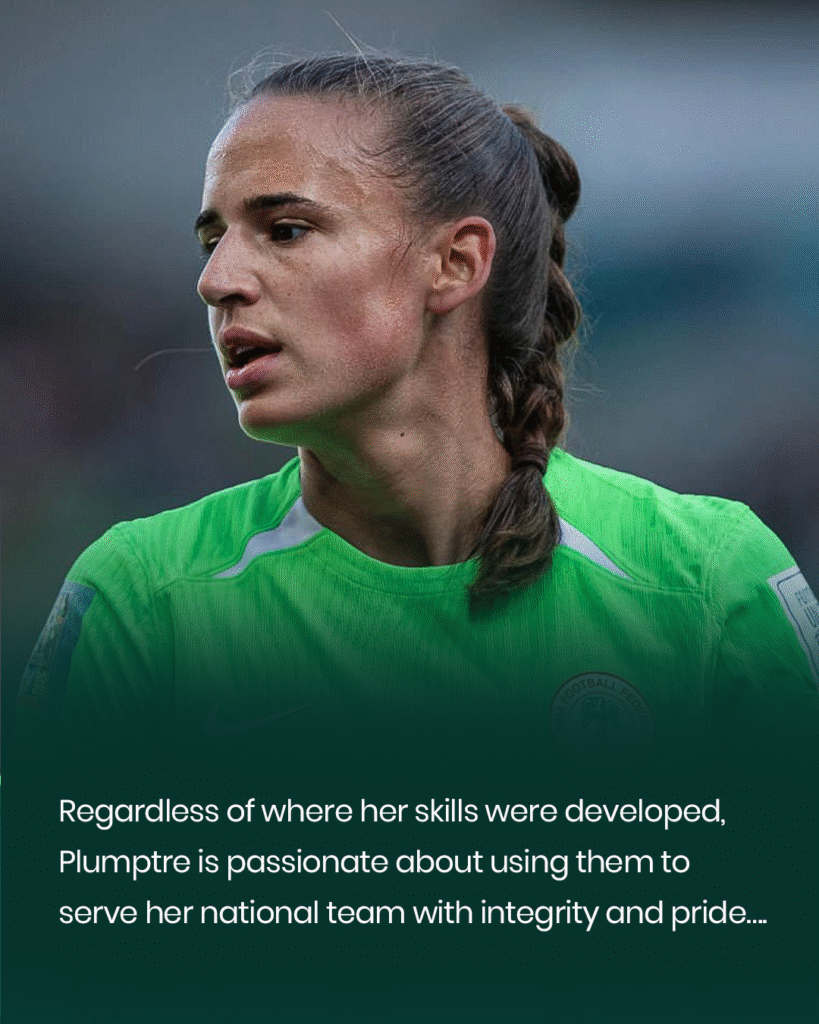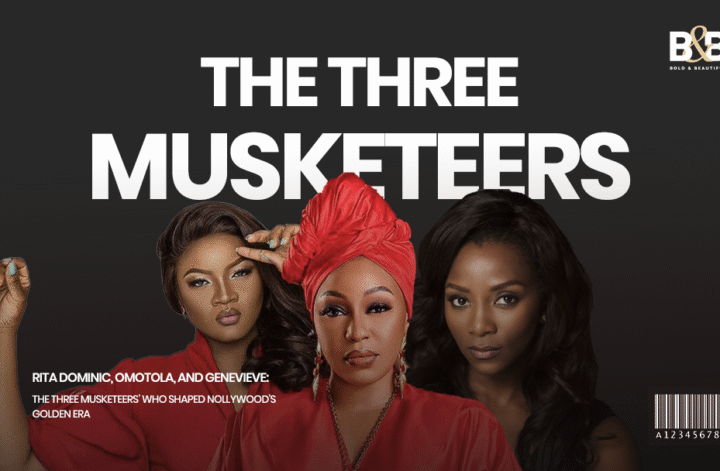There’s something arresting about the way Ashleigh Plumptre walks onto the pitch, sharp, assured, unapologetically grounded. Her name might once have been whispered through English football academies, but today, it rings loud in Nigerian households.

In her decision to wear the green and white of Nigeria’s Super Falcons, Plumptre did more than switch national allegiance. She made a declaration. A public embrace of ancestry. A quiet challenge to perceptions of identity. And a proud assertion that nationality runs deeper than place of birth.
Plumptre, the Super Falcons defender who chose her roots, was born in Leicester to a Nigerian grandfather and came through England’s football system with a résumé that spans youth representation for England, collegiate football in the United States, and a professional career in the Women’s Super League. But it was her 2021 decision to join the Nigerian national team that reshaped her global narrative and positioned her as a modern symbol of diaspora consciousness.
Plumptre’s entry into the Super Falcons was not handed to her. It came through persistent dialogue with the Nigerian Football Federation, self-initiated heritage exploration, and deep personal reflection. She did the work, both on and off the pitch. She studied Nigeria’s history. She immersed herself in culture. She trained with focus, communicated with humility, and listened with intent. When she finally debuted for the Falcons in 2022, it was clear she was not just present, she belonged.

Fans took notice. From Lagos to Enugu, her quiet confidence drew admiration. In a country where football often reflects more than sport, Plumptre emerged as a symbol of global Nigerian identity. Her presence helped shift conversations around what it means to be Nigerian, expanding the frame to include stories like hers: mixed heritage, raised abroad, yet deeply connected.
Off the pitch, her voice carries thoughtfulness. She has spoken about the weight of responsibility that comes with wearing Nigeria’s colours. Not as a favour, but as a duty. Her pride in representing Nigeria isn’t theatrical. It’s textured. It comes from having chosen the journey. She didn’t inherit the jersey; she earned it.
Ashleigh Plumptre’s presence in the Nigerian squad challenges long-held stereotypes of what African athletes should look like or where they come from. Her identity, British-born, mixed-race, culturally self-aware, expands the definition of African womanhood in global sports. She has often spoken about her awareness of being perceived differently, both in Nigeria and abroad, and how she uses that platform to foster dialogue rather than division.
According to reports, within the dressing room, she is not an outsider. Team officials and fellow players describe her as curious, and quietly influential. She asks questions, learns local expressions, and brings a steady sense of focus to team dynamics. Her adaptability is not performance, it is practice. She has done the work to integrate, not only by learning the tactical expectations of the team but by embracing the unspoken rhythms of camaraderie, humour, and shared struggle that define African team culture.

Ashleigh doesn’t speak in slogans. Her answers are measured. Her posture is calm. But make no mistake, her choices are deliberate. And in every stride, tackle, and anthem sung in green and white, she tells a story of return. A story of belonging that did not have to be loud to be heard.
Meanwhile, it is also safe to say Ashleigh is becoming a reflection of the increasingly fluid nature of national belonging among a new generation of global athletes. I mean, see the way her story resonates with many in the African diaspora: young people born into multicultural realities who are seeking authentic ways to reconnect with ancestral roots. For these individuals, Ashleigh is not merely a football player; she is a case study in how to navigate identity with purpose and dignity.
No doubt, her impact touches on the evolution of women’s football in Nigeria. By joining the Super Falcons, she brought global attention to a team long deserving of more. Sponsors, analysts, and new fans have taken notice. Her presence highlights the importance of creating inclusive, supportive pathways for talent, regardless of where it is developed, to serve national teams with integrity and pride.





